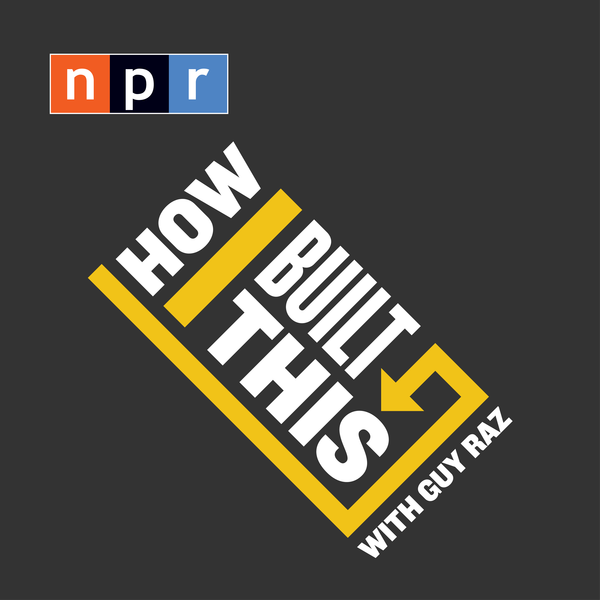Founder Lesson
A few weeks ago a first-time founder emailed me to meet-up. One of my favorite things is meeting new founders, so I'm always excited to get emails like that. However my enthusiasm quickly declined when I read this at the end of his email...
"Please see the attached mutual NDA and let me know if you have any questions."
While this founder was particularly secretive with this idea, I find that almost all first-time founders guard their ideas way more than they should.
And I get it.
I clearly remember the first time that I became aware of a competitor doing pretty much exactly what my startup was doing. It was 2008 and I had a startup that installed Wi-Fi into local retail stores. Then one day I stumbled across a startup that was doing the exact same thing...AND THEY WERE LOCATED JUST 10 MILES AWAY!!!
Do you know those times when you are so scared that your ears ring? Mostly due to (for real) life-or-death situations. This was one of those times for me and I can still remember the ringing in my ears.
This idea was my life and now someone else was going to beat me at it or do it better than me or something else bad that I couldn't even predict yet.
Fast forward ten years and I can honestly say that I give very little thought to competitive threats any longer and actually hope to find competitors for my projects (for additional validation of the opportunity).
A few thoughts on why you should share your ideas with lots of people...
1) The biggest hurdle for new ideas is customer apathy. Sam Altman, the President of Y Combinator, often says that the biggest competitive thread to new startups isn't big companies or new startups...it's customers not really wanting what you think they'll want. Sharing your ideas with lots of people will help you hone in on what your customer truly wants from your product.
2) Your main competitive advantage is being in motion. The reason I started blogging about founder issues was minute 16:13 of this video. It's Reid Hoffman, a famous startup founder and investor, describing what he does with new ideas. He says that an idea-stage founder's true competitive advantage is that they are assembling the information and team around an idea and they are in motion. I was sharing this video/advice with so many founders that I decided to start blogging about founder issues a few years ago.
3) Pattern matching The founder in this podcast says that sharing her idea with lots of people early was "essential." She talked with everyone about her idea and was hearing consistent patterns around how people described the problem. This pattern matching helped her launch a version of her product that best satisfied what she was hearing. She also says that she comes across people all the time who said they had this idea. The different between them and her isn't the idea...it's the activity to get the idea out there (the exact point of #2 above).
4) Audience building. The best founders that I know are more activist than businessperson. They love discussing their product with potential customers months (or even years) before launching. This is a powerful way to launch with a group of people who buy into your mission from the beginning. They will be your best early users and they'll tell lots of other people about your product once it launches.
5) Conversations are a symptom of passion. The best founders that I know won't stop talking about their idea. If they happen to run across a potential customer on the street, they'll grill them for 15 minutes. If I happen to know a lot about a topic (eg I just had my home renovated), they'll call and ask super detailed questions about different parts of the process if they are starting a startup in that area. If someone is in love with a problem and they are intellectually curious, you can't stop them from talking about their idea with others.
6) Activity gives you energy. There's only so much you can go over and over an idea in your head. Even if customers don't tell you what you want to hear (which will happen a lot), talking with the supply and demand side of your idea at a high cadence will give you forward momentum that's difficult to generate in the earliest stage.
I'm sure that there's some farm league baseball coach somewhere who's seen lots of players go to the pros and lots of players drop out. I would bet that this person has a few patterns that he's seen in the players that make it to the pros. Something like "they always get to practice 30 minutes early to prep their equipment" or "they never stay out late when they travel."
These things don't guarantee success, but they are a characteristic of the most successful people.
Sharing your idea with lots of people is one of those characteristics of the best founders that I've seen. They are confident enough to know that no one will steal their idea, flexible enough to alter the idea as they get meaningful feedback and smart enough to know the difference between noise and truly good feedback.
The best founders are also just incredibly intellectually curious about the space and can't stop talking about the problem.
Sidenote: If you enjoyed this post, you might like this one as well.
Get Right to the Lesson
I’d recommend listening to the entire thing, but to get right to the point go to minute 15:43 of this podcast.

Thanks to these folks for helping us all learn faster
Susan Tynan (@susanrtynan), founder & CEO of Framebridge (@framebridge)
NPR (@NPR)
How I Built This (@HowIBuiltThis)
Guy Raz (@guyraz)
Please let me and others know what you think about this topic
Email me privately at dave@switchyards.com or let's discuss publicly at @davempayne.
The best startup advice from experienced founders...one real-world lesson at a time.
